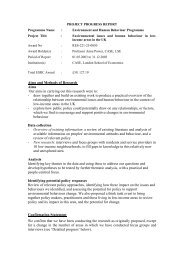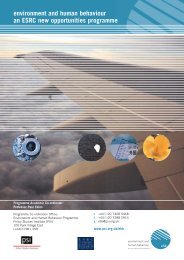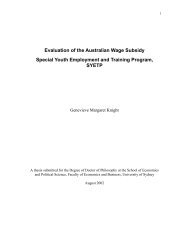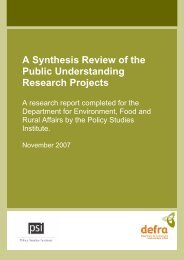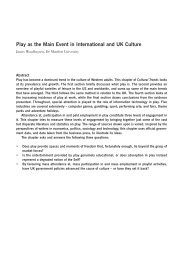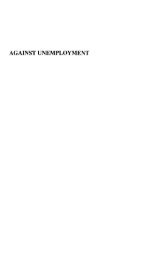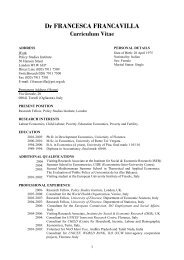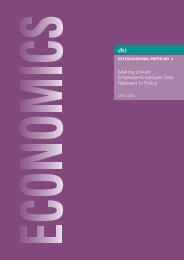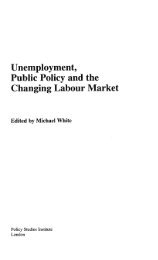Annual progress report - 2003 (pdf format) - Policy Studies Institute
Annual progress report - 2003 (pdf format) - Policy Studies Institute
Annual progress report - 2003 (pdf format) - Policy Studies Institute
Create successful ePaper yourself
Turn your PDF publications into a flip-book with our unique Google optimized e-Paper software.
Detailed Progress:<br />
(max 1 page to cover:<br />
(i) brief résumé of the development of the research since the<br />
start of the award<br />
(ii) if this is not the first <strong>progress</strong> <strong>report</strong>, main developments<br />
since the last <strong>report</strong><br />
(iii) any difficulties encountered e.g. in staffing, access, data<br />
analysis<br />
(iv) changes introduced or envisaged in the research objectives<br />
or methodology<br />
(v) an estimate of how far the original timetable will be met).<br />
(i) Brief résumé<br />
The initial research design drew heavily on the theoretical underpinnings of actor-oriented research<br />
when applied to the hazard field. This guided the development of a hazard-response model of policy<br />
negotiation as an adaptation of the contextual decision model produced by Penning-Rowsell (1996).<br />
As the project developed, it soon became clear that this design failed to offer insight in two important<br />
ways.<br />
Firstly, the original design did not adequately address why and how actor negotiation resulted in<br />
changes to policy. Therefore, alongside the need to undertake case study research, which directly<br />
contributed to the key aims and objectives of the research, it was clear that an understanding of the<br />
public policy and policy change literature was required. A broad literature base was consulted<br />
resulting in an important concept paper which specifically addressed the impact of crises on changing<br />
policy (Johnson et al, <strong>2003</strong>). Central to this theoretical insight was the development of a 'new'<br />
theoretical model of incremental and catalytic change (Johnson et al, <strong>2003</strong>).<br />
Having incorporated this 'new' model into the case study evaluation, this meant that the proposed<br />
actor-analysis, which focused on changes in individual actor behaviour prior to, during, and<br />
immediately following a major flood, would no longer be appropriate. Instead, analysis centred on the<br />
way in which the underlying beliefs, values and attitudes of the dominant coalition of actors, in each<br />
context, enabled certain ideas to dominate the policy agenda process. Therefore, rather than seeking to<br />
evaluate changing attitudes and perceptions of all stakeholders, only those key actors regarded as<br />
critical to the policy change process were evaluated.<br />
Secondly, the original research design did not adequately address the underlying changes to flood<br />
policy over the fifty-year period in which our four case studies were located. As the case study<br />
analysis unfolded it soon became clear that to understand each flood in context, such a broad<br />
understanding of policy change, as incremental change, would be necessary. Whilst a detailed<br />
analysis of all the possible influences on this incremental change, and their causes, was beyond the<br />
remit of our project, a basic understanding of the change in values, beliefs and attitudes towards the<br />
flood hazard over time was conducted (Tunstall et al, <strong>2003</strong>)<br />
As it currently stands, all of the secondary data analysis has been completed along with seven of the<br />
ten interviews proposed. It is our intention to conduct the final three interviews within the next three<br />
to four weeks. We are in the process of writing the final <strong>report</strong>, which will accompany the ESRC end<br />
of award <strong>report</strong>. There is no reason, at present, to assume that this will not be completed on time (due<br />
31-03-04).



